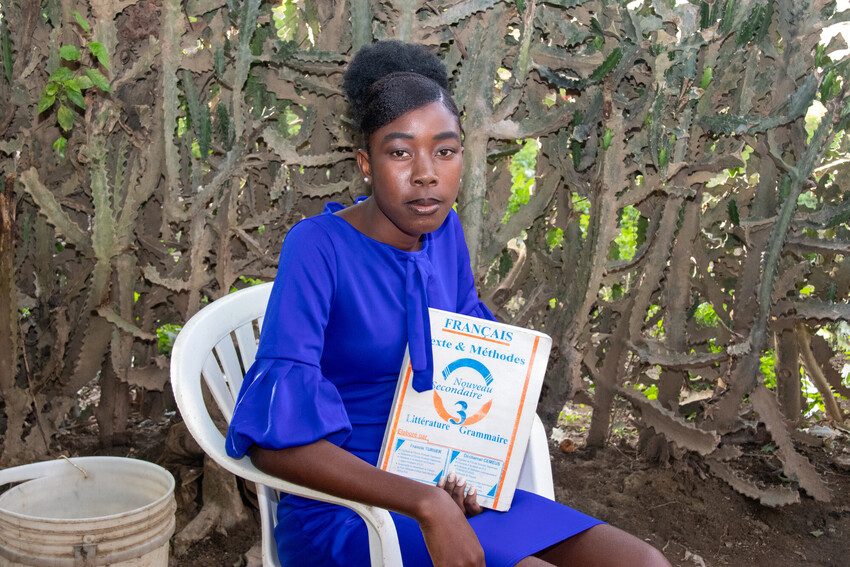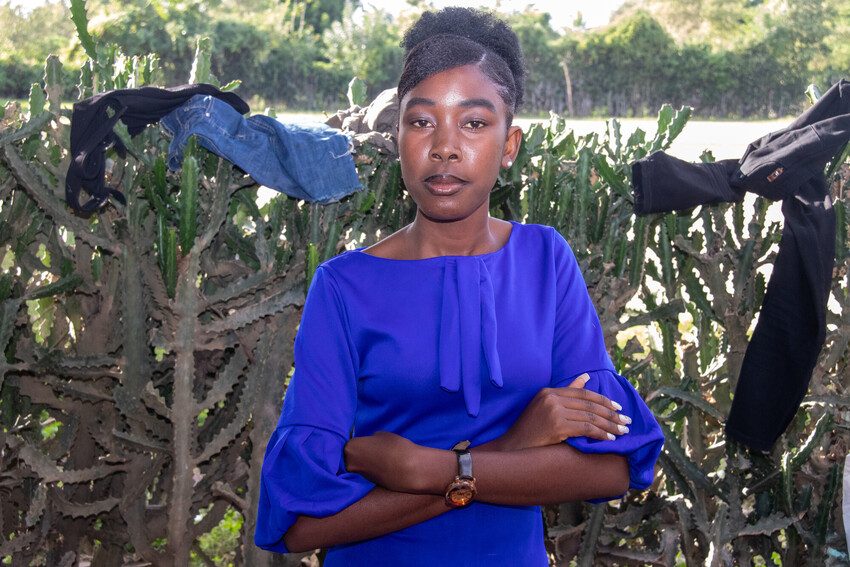Dalande, 16, lives in Haiti with her family, who struggle to make a living from rice farming. The country’s deteriorating situation has left many families, including Dalande’s, struggling to survive, but cash transfers have helped her remain in school.

Dalande, 16, says she has many ambitions in life, but is worried that the economic and political crisis affecting her country will prevent her from achieving them. “I want to study and fulfil my dreams, but we don’t have the money.”
Dalande’s daily struggle
Political turmoil, civil unrest, violence, crippling poverty and natural disasters: this deadly combination threatens the well-being and future of Haiti’s children. Almost half of Haiti’s population, many of them children, do not have enough to eat.
Dalande’s parents grow and sell rice, but they cannot produce enough to meet their daily needs. “We usually eat twice a day, but sometimes we only eat in the morning. If we have rice, it’s okay, otherwise my mother buys rice on credit to sell.”
Dalande often has to go to school hungry, and if her parents cannot find the money to pay her fees, she is excluded. “If I go to school without eating, I wait for the food we get at 11 o’clock. It’s free food distributed to the students.”
Haiti is the poorest country in Latin America and the Caribbean, and one of the poorest in the world. It has one of the highest levels of food insecurity in the world, with the number of food insecure people in the country tripling since 2016.

Where Dalande and her family live in the northeast, political instability and persistent poverty compound the problems, which are exacerbated by extreme weather events that often reduce agricultural productivity, putting further pressure on food supplies.
Getting help to where it’s most needed
For the past year, Plan International has been providing humanitarian assistance in the form of cash transfers to thousands of households to help families meet their food needs. Dalande’s family was identified as needing support and received financial assistance from the organisation.
“I’ve been involved with Plan International since I was a child,” says Dalande. “Recently, Plan gave my family money. I was able to pay half of my school fees and we gave the rest to my sister so she could do her exams.
“I want to finish my studies, become a psychologist and help my family”
Dalande,16
“My school fees are 5,000 Gourdes a year. I still have to pay 2,500 Gourdes. The school provides the textbooks. We only have to buy exercise books. Plan also provides us with learning materials such as bags, notebooks, pens and pencils. That’s good for us because our parents can’t afford to buy them for us.
“The money Plan gives to our family is important because it helps us get through this economic crisis. My mother was lucky to receive it. And for everyone who has had this opportunity, it has helped them fill a gap in their family.”
Plan’s cash transfers are unconditional: they allow communities to respond to their greatest needs while investing in more sustainable solutions that will enable them to become self-sufficient in the long term. This also boosts local economies by creating jobs and empowers people by reducing their dependence on food aid.
Dreaming of a better future
With Plan International’s support, Dalande now hopes to stay in school and achieve her dreams. “I want to finish my studies, become a psychologist and help my family,” she says.
“If I were president, I would help the street children and create a very big company to create more jobs. I would create free access to schools and help children who can’t go to university. I would give a home to those who don’t have one. I would do all this because I don’t like to see people suffering.”


